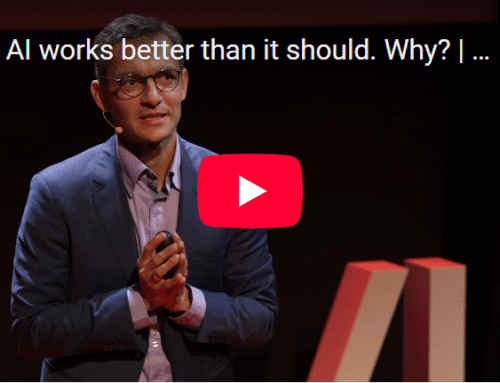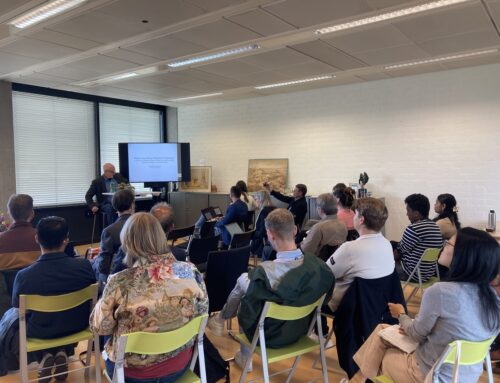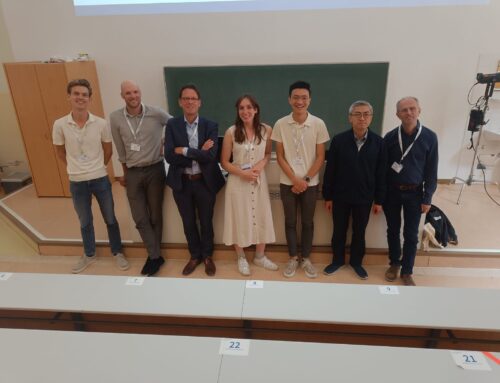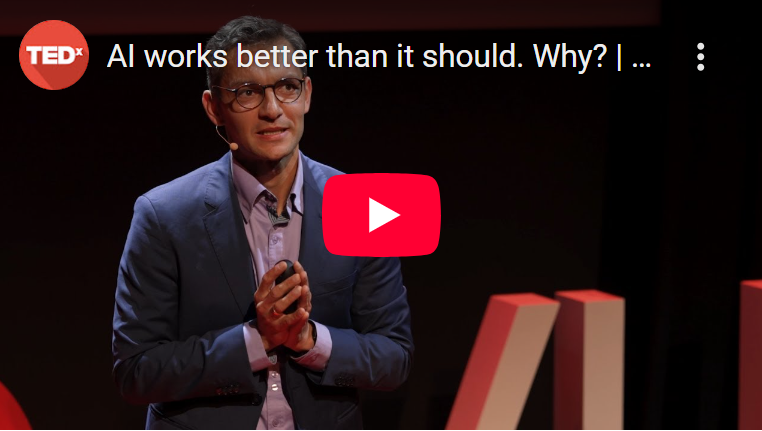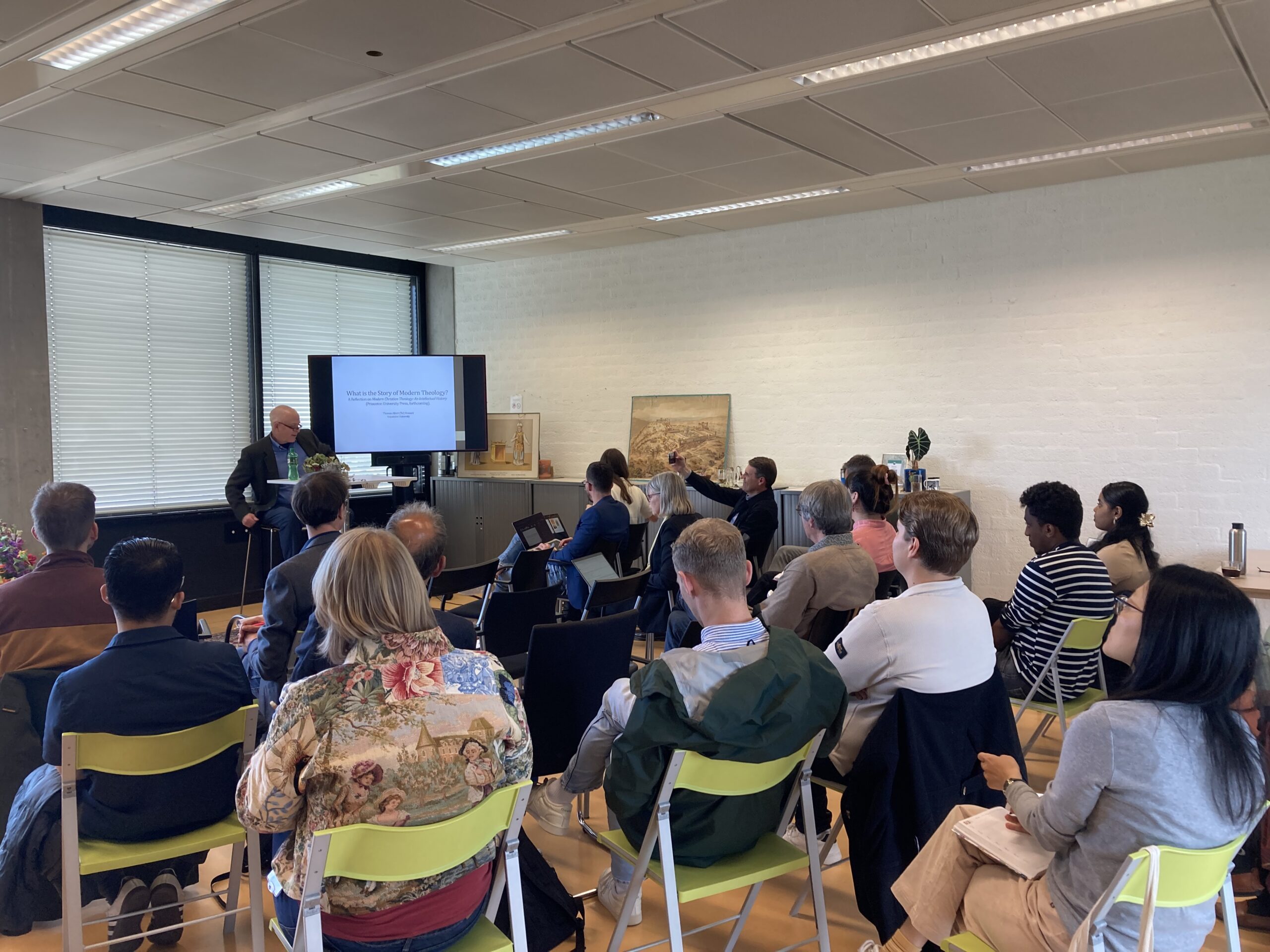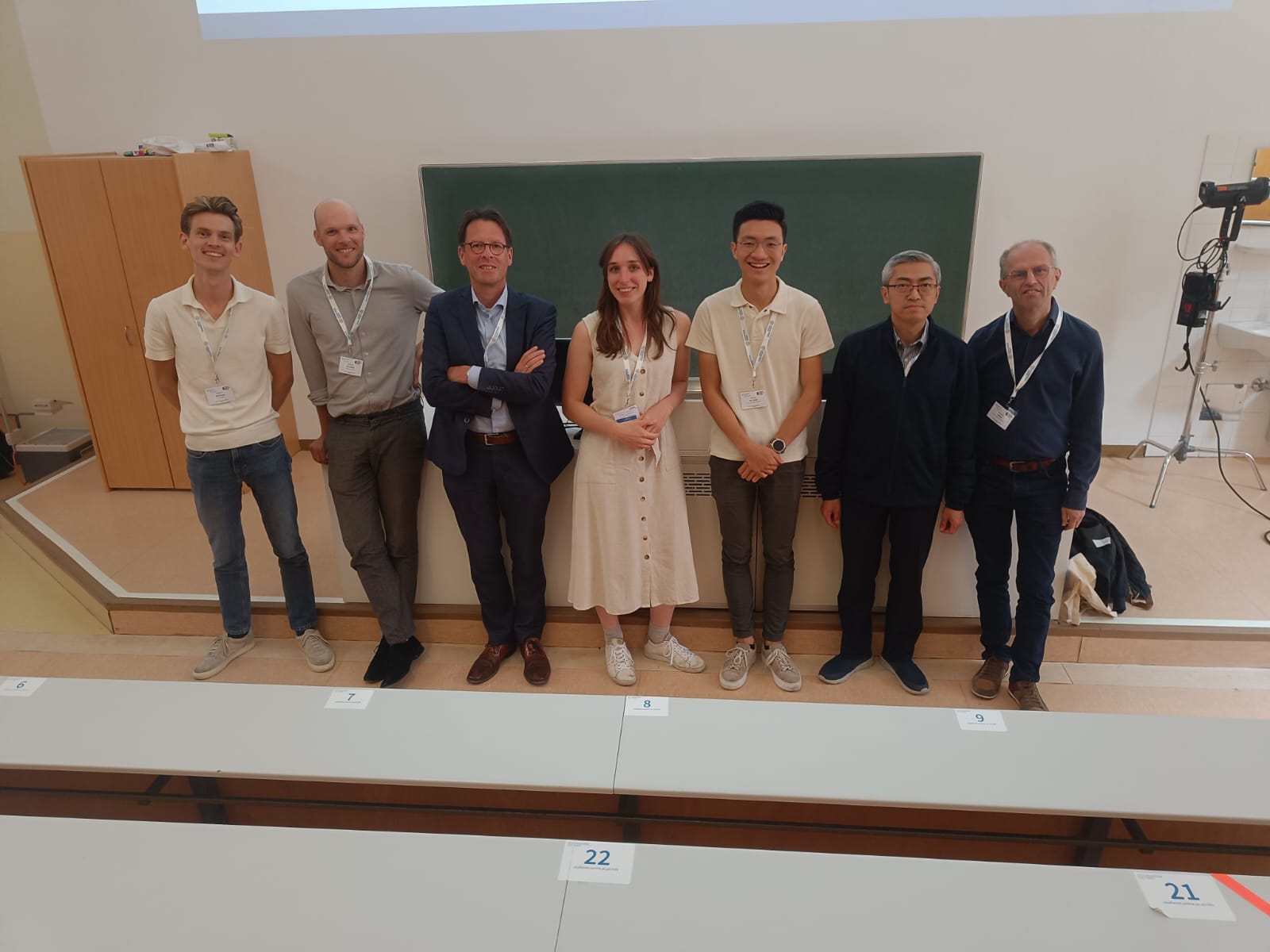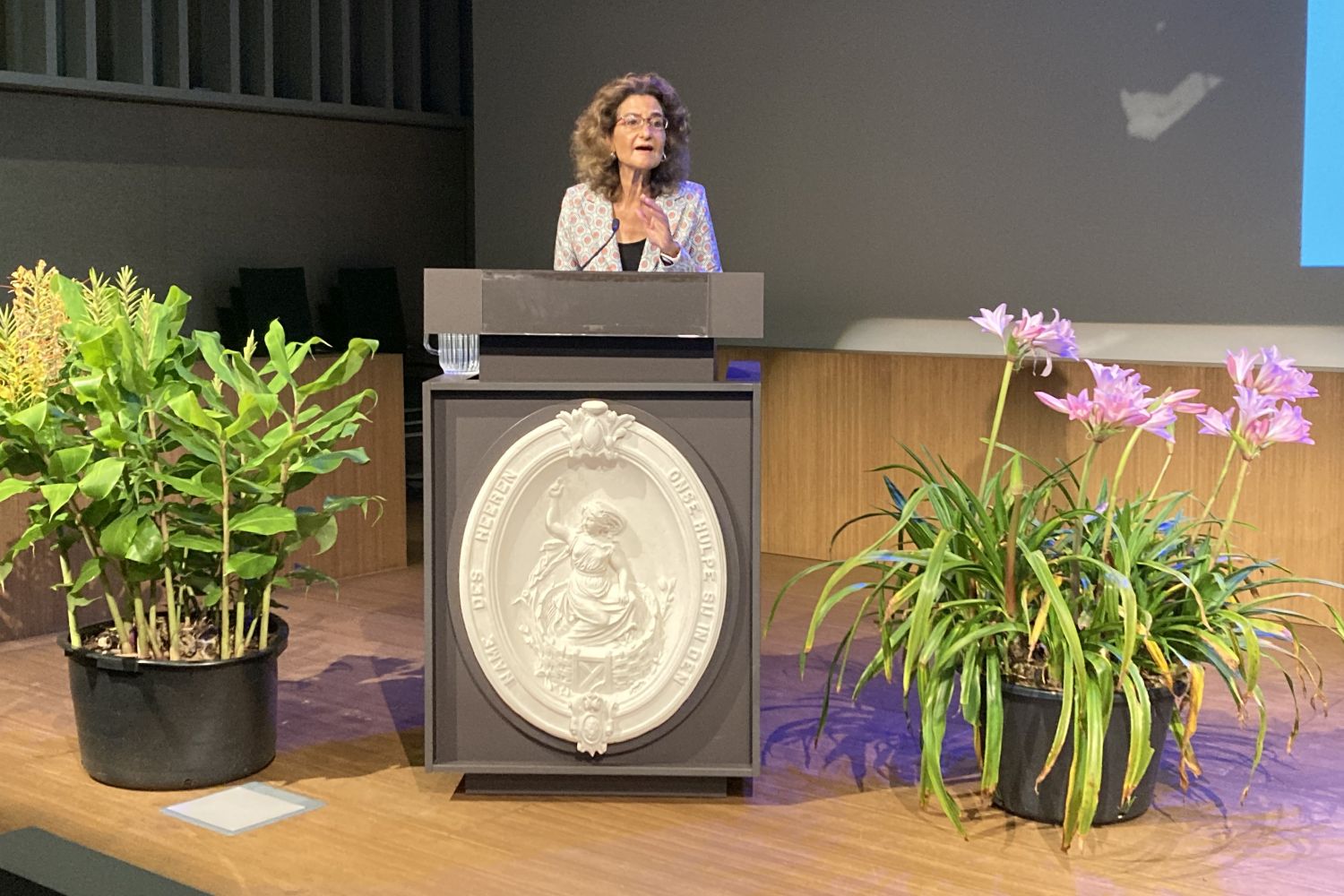
In an inspiring opening lecture of the FRT VU opening 2024-2025, Kathleen Ferrier, chair of the Dutch UNESCO Commission and Secretary General of the organization of migrant churches SKIN, urged theology and religious studies students to play an active role in society, combatting the growing polarization, division and loneliness. This is a reworked version published with the permission of Kathleen Ferrier.
Religion and hope
In my life, I have lived in Suriname, Brazil, Chile and Hong Kong. In Chile I learned what it means to live in a dictatorship, with no respect for human rights. The society was ruled by fear, people did not dare to speak out. In these dark times, religion was for many the only basis for hope. It gave people the courage to take to the streets for the protests, which, in the end, made dictator fall. Faith gives hope, knowing that this is not all, that there is more than this day-to-day reality of fear and insecurity.
And this hope was not focused at an afterlife, it was part of daily practice. I remember a women who ‘s son was arrested by the military police and disappeared. She told me, that she was hopeful, she was not overwhelmed by sadness, anger or fear. She found strength in Virgin Mary with whom she could identify: like her an unmarried mother, with a son who is causing troubles all the time. Speaking out against the authorities and despite her begging him to keep quiet, he kept standing up against the militaries and for human rights. Just like Jesus did. Who also, just like her son, happened to be born in a very poor family.
What I witnessed in those years in Latin America is how people in difficult circumstances get hope from religion. Knowing there is more to being a human being, as creature and child of God than the here and now. Knowing that despite all, you are loved and seen by a heavenly father, who never leaves you. You believe in something beyond the daily struggle. It stuck me that despite all the suffering, people did not lose faith, on the contrary. Of course, Latin America is a deeply religious continent. On the first day of my studies Spanish literature our professor told us that to understand literature written in Spanish we had to read two books at least once a year. The Quijote by Cervantes, and the Bible.
Religion in de public space
In Hongkong I got to see what it is to live in a society where religion and spirituality is not only deeply imprinted in the soul of the society, but is also very visible. In the Taoist tradition of Feng Shui, in all the small temples on the streets where people honour their Gods. In the densely crowded financial heart of Hong Kong, hurrying man and women dresses in business attire would stop in the middle of the noise and the pressure, and stand still in front of a small temple for prayer. For making a connection, one moment with the higher realm.
This kind of spirituality, lived in the public space, was not new to me. Growing up in Suriname, one grows up in a multi-ethnic and multi-religious, very spiritual environment. As in all former colonies, one lives in a society that is hierarchically structured. When you belonged to a lower social class, visible by the colour of the skin, the darker, the lower, you should be obedient to those from higher classes and fairer skin colours. In such a society, religion is a force of freedom. Since the basis is that all are created equal and we all have the same heavenly father. Therefore, slaves were not allowed to become Christians. It would make them bold and cheeky, as they would learn that they are equal to their masters.
In Dutch society, religion has long been considered something belonging strictly to the private space, behind the front door. That was an important achievement of the so-called modern society: to be liberated from the burden of religion. Dutch people are proud of being tolerant people, and when people from the former colonies, labour migrants, and refugees came to the Netherlands in the 60s and 70s, they were welcomed. They were put together in specific neighbourhoods, where they could express their culture and practice their habits, such as being religious people. It was assumed that soon they would want to become modern people just like the superior Western men and women that surround them, and then they would quickly forget about these backward habits and certainly forget about their religion too.
On the contrary, migrants did not lose their faith, they started their own churches, against all odds, and by doing so, and by all the social work that is done by the members of the church, it becomes clear that religion could and should not be kept away from public space. It cannot be kept behind the front door as it is the motivation and inspiration for many. The moral compass for the choices people make.
A Society of segregation and loneliness
Those who migrated to the Netherlands have never been really invited to integrate. Too many prejudices and discrimination. The Netherlands is a segregated country, where different pillars exist next to each other. But despite these pillars, there was always the wish to be one society. Anno 2024 it seems to me that the wish to be one society has vanished. There is a lack of interest or curiosity in the fellow human being. The fault lines in our society had become deeper.
There are various reasons for this, but one I think might be important to mention is technology. A screen decides what we know, what we think and how and with whom we make connections. Our friends on social media are more real than the people next to us. Furthermore, in our online groups, we gather with people who are like us. A group who confirms one in one’s superiority and invite to create enemy images of others. Moreover, technology creates a loneliness in people, which was amplified by the COVID-19 crisis.
Create peace in the minds of people
I notice this as the chair of the Dutch UNESCO Commission. Our mission at UNESCO is to create peace in the minds of people. Since wars begin in the minds of people it is in the minds of people that the defences of peace must be constructed. I see minds longing for connection. People struggling with the void, that is partly the result of banning religion form public space in our society. In these times with the surge of armed conflicts in so many places, people turn to UNESCO and ask us: how do you create peace in de minds of people? An important question in an important time, because we see loneliness and fear to connect, connect horizontally, with fellow human beings and to connect vertically, with heaven. While there is a huge and vastly increasing yearning for connection.
So, today you ask me what the role of religion in our society is. A huge role, I would say.
Because of various reasons. First, on a personal level, from my growing up in Suriname and my experiences in Latin America, I know religion has a huge power, as it can give hope to people, even in extremely difficult circumstances because of political oppression or poverty, and it gives confidence. Also, Religion breaks hierarchical structures, and it leads us to believe in the un-seen and to know that there is a power that goes beyond what we understand. This can fill the emptiness and the loneliness many people and certainly young people experience, and it can push back the fragmentation of our society.
What can religion and theology do?
People yearn for connection, horizontally and vertically, and also for silence and stillness. Churches and religious places have since centuries set the example of silence and stillness: by prayer. Furthermore, society needs religion to learn not to judge but to practice forgiveness. We can judge but have to do it thoughtfully and be aware of using different standards for others than we do for ourselves, as Jesus says: Why do you see the speck in your neighbours eye but do not notice the log in your own eye. Social media trains us to do the opposite. It encourages us to make rapid public judgements with little concern for the humanity of those we criticize. Buddhist and Hindu traditions go even further, urging us to forswear judgement entirely. The world’s major religions advise us to turn down the judgmentalism and to turn up the forgiveness. In the Torah, God commands the Israelites: ‘Do not seek revenge or bear grudge against anyone among your people. But love your neighbour as yourself’. Thousands of years later Martin Luther King Jr used the power of forgiveness as developed in the Judeo-Christian tradition, to inspire those in the civil rights movement to act in elevated ways.
And there is language. Our society needs religion, spirituality and theology to find language for issues we have to learn to deal with. All these feelings of impotence in the face of so much suffering, Gaza, Ukraine, Sudan, Myanmar, Afghanistan. Who can give an answer to our feelings of impotence and how do we find words to express what we feel? Religion can help.
Theologians speak out!
I hope I have given you some reasons, why I think that it is urgent, that religion, spirituality, and theology play a far more prominent in our society. It is urgent that scientists, academic theologians, stand up and take their role. The political situation of our country urges you to speak out. To be fearless and clear. Because religious values are under threat. For instance: it is becoming generally accepted that people are NOT equal, we see that in algorithms used by the government. And if you do not stand up and claim these values, others will. Politicians who say they protect the Judeo-Christian values, while in reality, they ABUSE them. For their own benefit and aiming to create fear and chaos. They say they protect Judeo-Christian values, but they forget one of the pillars of the Judeo Christian values and tradition: hospitality.
To summarize, what I have tried to make clear is that religion must play a far more important role in society, than it actually does now. Because of the basic benefits it brings to a society, to people, Hope, Confidence, believe in something higher. Secondly, in these post Covid, phone-based times, we need religion to push back on some the dangerous pitfalls societies worldwide struggle with: emptiness, fragmentation, loneliness, lack of meaning. And thirdly, I would urge to open your eyes. Do not ask me, not a scientist, nor a theologian to point out what the role of religion is or must be.
The need for your wisdom is huge.
Kathleen Ferrier: Chair Dutch UNESCO Commission, advocate for social change and equality, member iERG and Dutch Parliament 2002-2012
Leave A Comment
Related Posts
In his recent talk at TEDxVUAmsterdam Marius Dorobantu shared an intriguing vision of how thinking [...]
In September 2025, we had the pleasure to welcome prof. Thomas Albert Howard [...]
From left to right: Michiel Bouman, Matthias Teeuwen, Gijsbert van den Brink, Marieke van [...]
